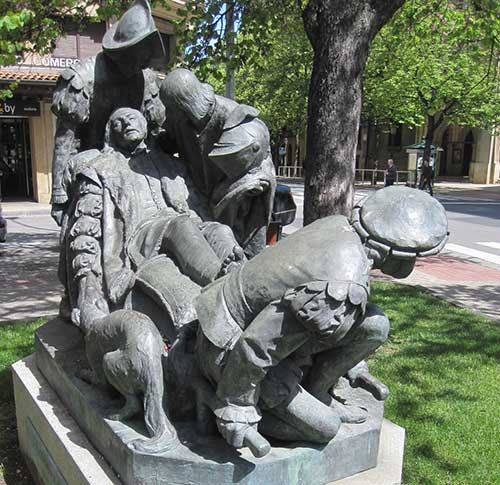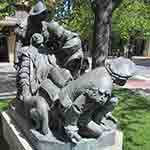
Praying The Bible (Part 1)
Praying The Bible (Part 2)
Ignatius Loyola popularised a method of praying the Bible using one’s imagination. Some of you may find this really helpful. Some of you may not. Pray as you can…
There is a problem with language particularly highlighted with this “method” – some use the word “contemplation” for this use of imagination, others would use “meditation”. Some would use “contemplation” for silent prayer which eschews images; others would use “meditation” for such silent prayer. So, please take care to be clear when teaching or discussing Christian (and other) forms of prayer, contemplation, and meditation…
The Ignatian approach would include
- pick a passage; you can prepare this the night before
- asking for God’s grace – quite specifically: what do you seek?
- using all your senses to imagine yourself into the scene
- rest in the moment(s) that speak to you; in God’s presence
- reflect on what you experience and feel
- give thanks
you can note in a journal important moments in the time set aside for this type of praying, and decisions you made
you can return to the same passage again and again – going deeper; resting in God’s presence in the places and points that touch you, that speak to you…
Add any points that speak to you in the comments…
If you appreciated this post, consider liking the liturgy facebook page, using the RSS feed, and/or signing up for a not-very-often email, …
Instagram’s @liturgy is the new venture – if you are on Instagram, please follow @liturgy.




Thanks Bosco, praying at church with others is contemplation for me. Praying at my yoga class with others is meditation for me. Praying on my own…still working that one out…
I think this is rather opposed to what the ancients did. For instance, the desert fathers insist a lot on casting the imagination away. The icons, for instance, are generally minimalist on unimportant things, in order to focus on the essential of the mystery represented. Such should be our reading of the Bible too.
Yes, George – I have often stressed the importance of renewing apophatic. I do think there is a complementary place for the kataphatic. Blessings.